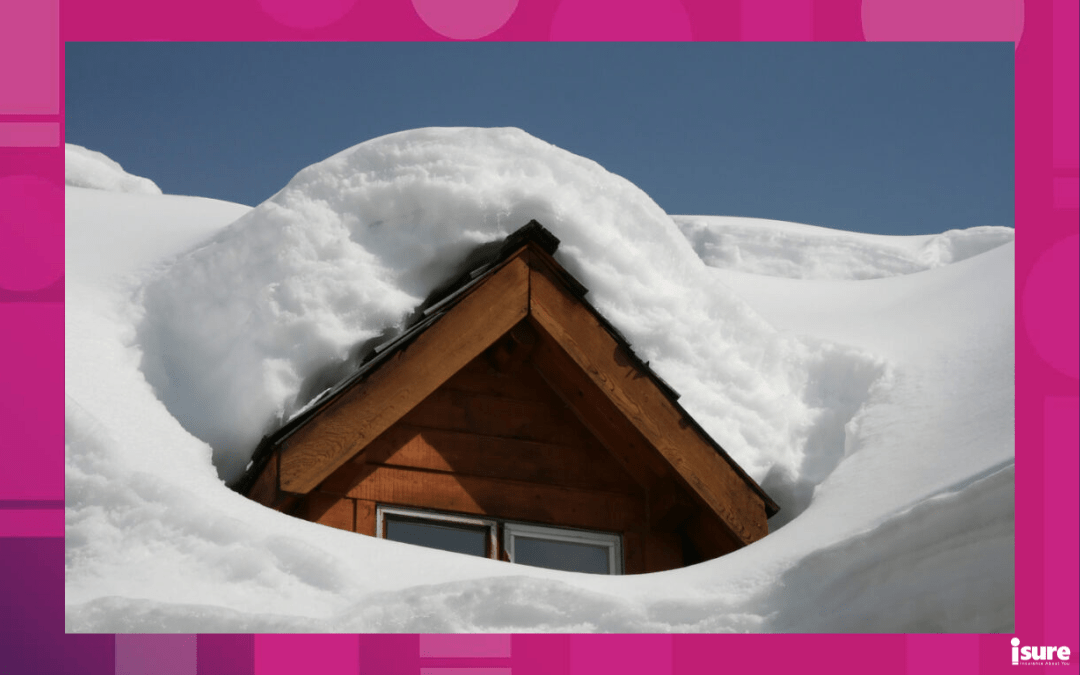What comes to mind when you hear the words “ground-water damage”? Is it an image of an overflowing bath? Or is it water streaming down the basement walls? Both are correct, but it doesn’t stop there. To help you make sense of the type of damage coverage you may qualify for, here is isure’s run-down of water damage with emphasis specifically on Endorsement 42: Above-Ground Water coverage.
What is above-ground flooding?
In insurance terms, overland water is fresh water that flows above ground, such as:
- Overflow of any body of fresh water, such as lakes and rivers
- Heavy rain, spring run-off, or melting snow/ice
Overland water enters your home through windows, doors, or other ground-level sources. Overland water can also make your house or apartment inaccessible and unliveable while it is flooded or being fixed. About 90 percent of the population is eligible for overland water coverage. If you live in a high-risk area, you may be limited to the water damage coverage you can obtain or it may not be offered.
So, what exactly is Above-Ground Water Coverage, a.k.a. Endorsement 42?
Generally, home insurance policies don’t cover certain types of unexpected events. This includes floods, earthquakes, landslides, and sewer backup. In addition to overland flood coverage, companies are beginning to offer groundwater coverage. This protects against water damage from underground natural sources, such as basement walls, foundations, and floors. It is an optional coverage you can add to your insurance policy under certain conditions. It offers protection against sudden and accidental damage caused by:
- Water leaks, overflows, or backups from gutters or downspouts.
- Rain or snow that seeps in through the roof, walls, doors, or windows.
- The weight of snow, ice, or wet snow.
What is the difference between overland water and above-ground water coverage?
Above-ground water is an optional coverage for purchase for homeowner insurance policies. It will offer protection for events when groundwater enters your home suddenly and accidentally through basement flooding, walls, slabs, and foundation. Overland Water coverage is also an optional coverage for water damage caused by overflow of a lake or river, heavy rain, or rapid snowmelt that enters your home from a point at or above ground level.
How to protect yourself against water damage of all types
1. Basic coverage
Your basic policy covers you against certain types of water damage. For example, it protects you in the event of leaks caused by:
- Electric household appliances, such as a dishwasher
- Plumbing problems, such as a burst pipe
2. Optional coverage
You can add optional coverage to your policy to protect you against water damage – above-ground water (Endorsement 42) caused by:
- Seepage of rain or snow through the roof or walls
- Water damage – surface or groundwater including sewer backup
What’s not covered?
Your policy will NEVER cover certain water damage losses. These types of losses can include:
- Long-lasting seepage and leakage
- Rain or snow entering through an open window
- Roof leaking due to wear-and-tear
Prevent damage caused by rain, snow, or sleet
Here are some tips to help prevent water damage caused by rain, snow or sleet:
- Watch out for early signs of ceiling water damage, like stains or blistering.
- Direct water from the gutters away from your house with a downspout extension.
- Clean out your gutters in the spring and fall. For your safety, consider hiring a professional.
- Clear snow and ice off the roof, especially if over 2 feet (70 cm) of snow or 2 inches (5 cm) of ice accumulates. For your safety, consider hiring a roof snow removal professional.
- To prevent ice dams from building up on the edge of your roof, your attic needs to be well-ventilated and properly insulated. This helps reduce heat transfer to your roof.
- Check for signs of structural damage, like cracks on indoor walls, doors that start to stick or don’t close properly, and warped ceilings.
- Inspect the seals around doors and windows for signs of wear. Reapply caulking as needed.
It is important to note that not all homes are eligible for Overland Water Coverage. If you live in an area that is considered to be a high-risk flood zone, it is likely not available.
The benefit of working with an isure broker is that we have various insurers at our fingertips, meaning we can look and find companies who can help you. Just because one company doesn’t provide it, doesn’t mean all companies don’t. If you are concerned about the possibility of water damage this winter, or simply want a better insurance plan, why not contact isure? We have some of the best prices when it comes to premiums as well as customer service you can always rely on. Contact us or request a quote today!




